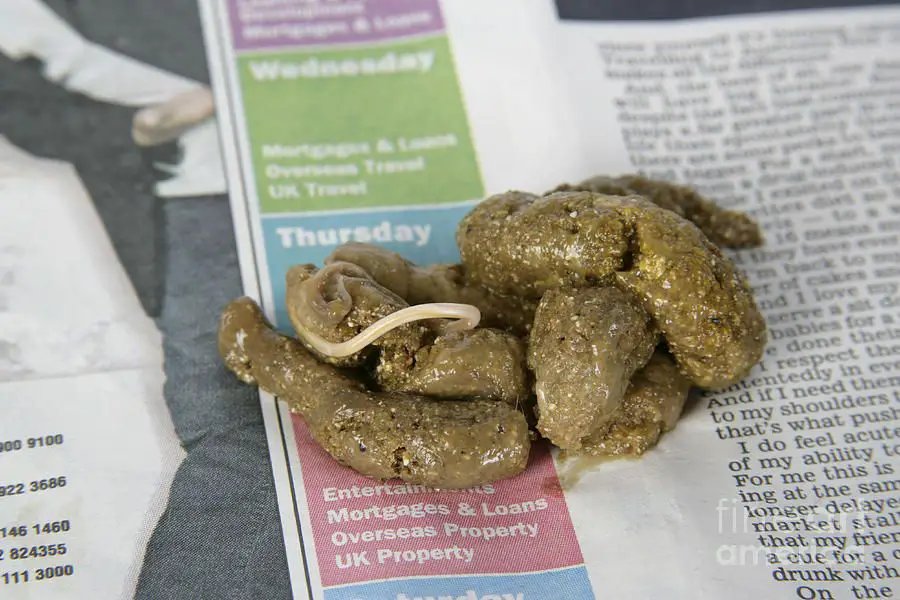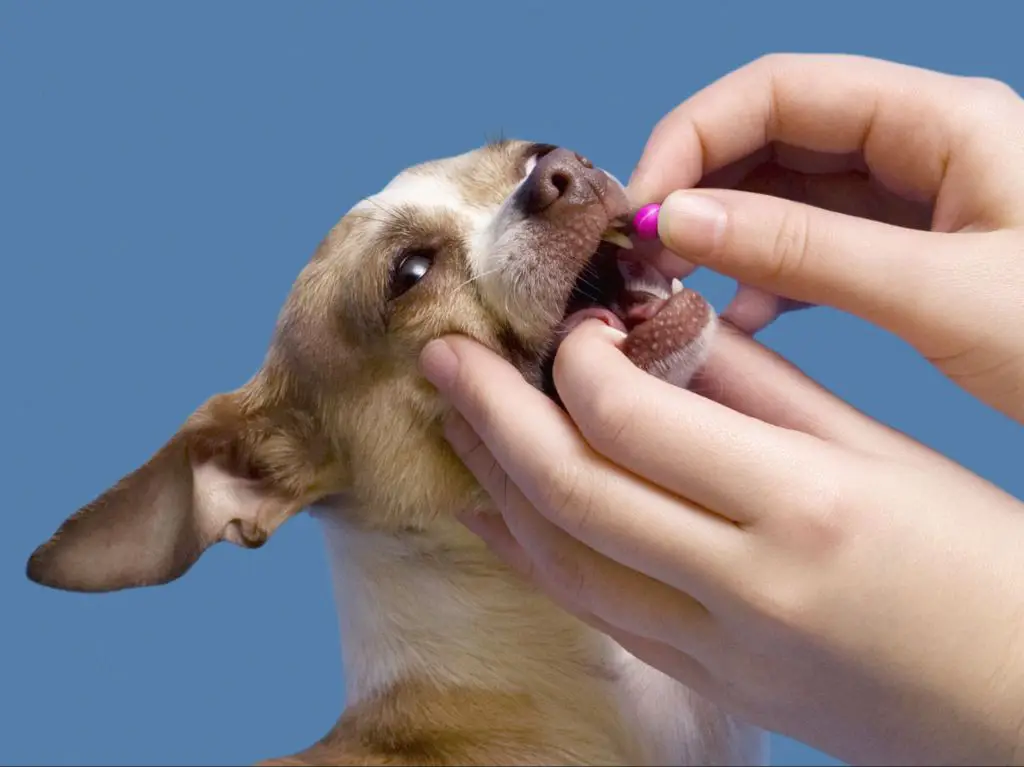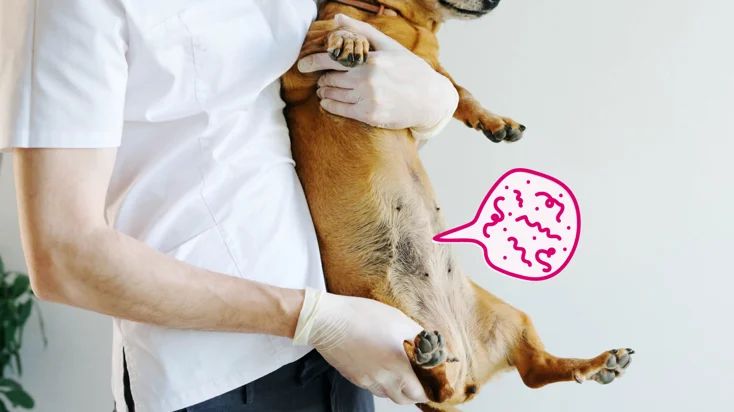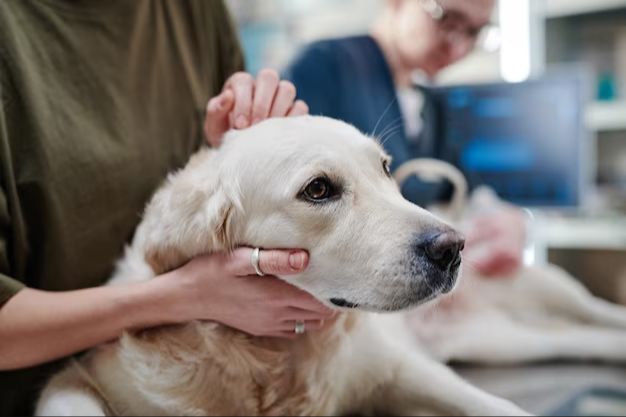Introduction
Deworming is something many dog owners have to go through at some point while having a canine companion. Whether your dog was adopted as a puppy or picked up as an adult stray, chances are they’ve been exposed to parasites like roundworms, hookworms, or tapeworms at some point in their lives.
If you’ve just dewormed your dog for the first time, you may be wondering what comes out the other end after medicine has been administered. Do dogs always poop out worms after being dewormed? Let’s take a closer look at the facts around deworming and what you can expect to see pre- and post-treatment.
What is Deworming?
Deworming refers to administering medication to dogs to eliminate intestinal worms and parasites. Deworming medications work by paralyzing and killing worms in the dog’s digestive system, causing them to detach from the intestinal lining and be expelled through the stool.
Some common deworming medications used for dogs include:
- Fenbendazole – Kills roundworms, hookworms, whipworms and tapeworms
- Pyrantel pamoate – Treats roundworms and hookworms
- Praziquantel – Primarily used to treat tapeworms
- Ivermectin – Broad spectrum dewormer good for treating roundworms, hookworms, whipworms
- Milbemycin oxime – Used to treat roundworms, hookworms, whipworms and heartworms
Common Intestinal Worms in Dogs
There are four main types of intestinal worms that commonly affect dogs:
Roundworms

Roundworms are long, white worms that look like strands of spaghetti. They are the most common intestinal parasite in puppies and unvaccinated adult dogs. Puppies can pick up roundworms before birth from their mother’s milk or soon after birth through contact with infected feces. Symptoms of a roundworm infestation include a pot-bellied appearance, vomiting, diarrhea, dry/dull coat, and weight loss.
Hookworms
Hookworms are small worms that attach themselves to a dog’s intestinal wall and suck blood and nutrients. This can cause anemia, weight loss, diarrhea, dark/tarry stool, weakness, and dehydration. Dogs may also scoot their bottoms along the ground in an attempt to relieve the itching caused by hookworms.
Whipworms
Whipworms live in a dog’s cecum and colon. They cause watery, bloody diarrhea, weight loss, lethargy, anemia, and dehydration. Whipworm infections are usually diagnosed through a fecal examination.
Tapeworms
Tapeworms are flat, segmented worms that live in a dog’s intestines. They absorb nutrients through their skin which can lead to weight loss, malnutrition, and lethargy. Tapeworm segments containing eggs frequently break off and pass in the dog’s feces. These segments look like grains of uncooked rice.
When is Deworming Necessary?
Veterinarians recommend deworming puppies starting at 2 weeks old, and then every 2 weeks until they are 3 months old. After that, dogs should be dewormed at least 4 times per year and routinely tested for intestinal parasites.
There are several symptoms that indicate your dog may have a worm infection and require deworming treatment:
- Diarrhea or loose stools
- Vomiting
- Visible worm segments or eggs in the feces
- Dull, dry coat
- Weight loss
- Pot belly appearance
- Coughing
Puppies with heavy worm burdens may also show slowed growth and development. If your dog is exhibiting any of these signs, take a fresh fecal sample to your veterinarian for testing. They can then recommend appropriate deworming based on the type of worms found.
What Happens After Deworming?
After being given a dewormer, most intestinal worms will not immediately be expelled from the dog’s body. The medication works by paralyzing and killing the worms over a period of time as it circulates through the dog’s system.
Once dead, the worms will detach from the intestinal lining and travel to the dog’s colon to be expelled naturally through defecation. However, this die-off process can take anywhere from 12 hours to several days depending on the type of dewormer and infestation.

It is not always common for pet owners to visually see large amounts of worms being expelled after giving a dewormer. In many cases, the dead worms pass out of the body in small pieces intermixed with the dog’s feces. Some owners may never even notice the worms’ elimination.
So while it is possible you may see worms after deworming, this does not always occur. The medication is still effective at killing the parasites internally even if large amounts are not visible during defecation. The best way to check efficacy is through a fecal test by your veterinarian a couple weeks after treatment.
Signs Worms Were Eliminated
There are a few signs indicating that deworming was successful and worms have been eliminated from your dog’s system:
- No more worms visible in stool
- Improved coat and skin condition
- Increased energy and appetite
- Weight gain in previously underweight dogs
- Reduction of other symptoms like diarrhea, vomiting, or coughing
It’s a good idea to do a fecal test after deworming to confirm the medication was effective. Vets typically recommend testing the stool 2-4 weeks after finishing deworming treatment. This allows time for medication to fully work and any remaining worms or eggs to pass through the system. If the fecal exam comes back negative, you can be assured the deworming worked.
Some vets may advise doing an additional fecal test 2-3 months later to check for any new reinfestations. Intestinal parasites have a lifecycle of several weeks, so testing a few months later helps detect any dormant eggs that may have matured into adult worms. Maintaining regular fecal testing ensures your dog remains parasite-free.
What To Do If Still Seeing Worms
If you continue to see worms in your dog’s stool after deworming, don’t panic. Here are some tips on what to do:
First, contact your veterinarian. Let them know the medication doesn’t seem to have fully eliminated the worms. They can recommend continuing the course of medication, trying a different dewormer, or running additional tests to identify the type of worms.

In the meantime, be vigilant about sanitizing your home and yard to prevent reinfestation. Here are some tips:
- Clean up feces immediately and dispose of it properly. Worm eggs can survive in soil and grass for long periods.
- Wash your dog’s bedding and toys frequently with hot water and soap.
- Clean food and water bowls daily with soap and hot water.
- Vacuum carpeting and mop hard floors with an antimicrobial cleaner.
- If your dog goes potty outside, sprinkle diatomaceous earth on the soil to kill parasite eggs.
With veterinary guidance and a thorough home sanitation regimen, you can get your dog’s worms under control. Be patient, as it may take multiple rounds of medication and cleaning to fully eliminate an intestinal worm infestation.
Preventing Reinfestation
To help prevent your dog from getting reinfected with intestinal worms, there are some important steps pet owners can take:
- Clean up feces quickly – Pick up and dispose of your dog’s poop as soon as possible when outside to prevent environmental contamination.
- Treat other pets – Make sure all pets in the household are up-to-date on deworming to avoid cross-infection.
- Prevent access to feces – Supervise your dog when outside and keep them away from areas contaminated with feces.
- Bathe and groom regularly – Bathe your dog monthly and brush frequently to prevent eggs/larvae from accumulating in the fur.
- Control fleas – Use flea control products recommended by your vet since fleas can transmit tapeworm.
- Clean living areas – Vacuum and mop hard floors regularly to remove eggs and larvae inside.
- Avoid eating feces – Monitor your dog’s behavior and speak with your vet if coprophagia (eating feces) is an issue.
- Have regular fecal exams – Your vet should check your dog’s stool at least 2-4 times per year for parasites.

Following these guidelines can help minimize your dog’s chances of getting reinfected with intestinal worms after deworming treatment. Speak with your veterinarian if you have any other questions about prevention.
Conclusion
Deworming is an important part of dog health to eliminate intestinal parasites. Common worms like roundworms, hookworms, whipworms and tapeworms can cause health issues if left untreated. Veterinarians typically recommend regular deworming as a preventative measure, though some worms can be spread through contact with contaminated soil or feces.
After being given a dewormer medication, it’s common for pieces of the dead worms to pass through your dog’s stool. This is a sign the medication is working effectively. Continue monitoring their poop over the next several days to ensure no live worms reappear. As long as there are no recurring signs of an infection, the deworming was successful.
If live worms continue to be present after treatment, contact your vet, as a different medication or additional dose may be needed. Be sure to keep up with preventative care by having your dog dewormed on a regular schedule. Promptly remove dog waste in the yard, and wash your hands after contact to avoid accidental transmission. With vigilance and veterinary care, intestinal worms can be well-controlled.
References
American Kennel Club. (2020, August 31). Deworming: A Vital Part of Your Dog’s Health Care Routine. https://www.akc.org/expert-advice/health/deworming-your-dog/
Banfield Pet Hospital. (n.d.). Dog Deworming Schedule: When To Deworm Your Dog & Types of Treatments. https://www.banfield.com/pet-healthcare/additional-resources/article-library/wellness/dog-deworming-schedule-when-to-deworm-your-dog
Centers for Disease Control and Prevention. (2021, August 5). Dogs and Puppies: Roundworms. https://www.cdc.gov/parasites/dogs/roundworms.html
PetMD. (n.d.). Worms in Dogs. https://www.petmd.com/dog/parasites/worms-dogs-everything-you-need-know
VCA Hospitals. (n.d.). Worms in Dogs. https://vcahospitals.com/know-your-pet/worms-in-dogs